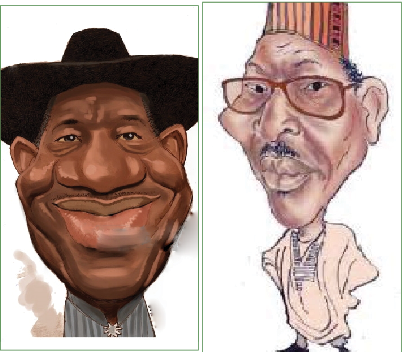By Okey Ibeanu
We suffer for this. So many people charged with informing us, with informing themselves, are just sitting still” – Ta-Nehisi Coates
Dear Jibo,
I am sure that by the time you get to read this, your latest ‘Deepening Democracy’ article on “resolving the Igbo question” would have gone viral on Facebook. Certainly, that is what public intellectuals crave, and I am sure you expect that to happen. Like many people, I have admired you for many years, not just because of our longstanding friendship, but also because you are a fine political scientist and a strong activist. And it is precisely because of that admiration and long friendship that I must now break my usual studied silence on contemporary Nigerian politics and its dominant framing. It is also important to do this for a second reason. I am aware that several young Nigerian social scientists and civil society activists regard your opinions as the epitome of political analysis. I am also aware that many people in power and those in its hallowed corridors listen a lot to you. I therefore think that it is extremely important to provide this preliminary reaction to this Igbo question thing.
Bruno Bauer
Jibo, you could not have chosen a worse German philosopher to frame your discourse than Bruno Bauer. A German Rationalist philosopher, Bauer was renowned for his now profound and now perfunctory critiques of religion, especially the Bible. However, if you had researched Bauer a bit deeper, you would have found two things: First, is the difference in narratives between Bauer and Jews on the situation of Jews in Europe in the 18th and 19th centuries. While Jews framed their situation in terms of “Jewish Emancipation”, culminating in a Jewish State, Bauer framed it as the “Jewish Question”, a problem the solution of which lies in Jews recanting their religion. The second thing that you would have found about Bauer is the prevalent accusations of anti-Semitism against him at the time. To be sure, some have argued that the accusations were unfair, considering that Bauer was as scathing in his criticisms of Jews as he was of Protestants. Still, without doubt, as a popular public intellectual of his time, Bauer’s views on German Jews was an important moment in a long lineage of “Solving the Jewish Question”, which culminated in the “final solution”.
Single strand narratives
That leads me to the second pitfall in your article: the limits of single strand narratives. European Jews demanded a solution for their emancipation in a Jewish State; the Nazis sought a final solution in the Holocaust. The Jewish State, born out of resistance to oppression and a cry for emancipation, was finally created in 1948 by expropriating the people of Palestine and it has since become one of the most oppressive states known in history, denying Palestinians their own emancipation. Many people, including Nigerians, still persist in the uncritical framing of the Arab-Israeli problem as one of emancipation of Jews who fear annihilation in the land given to them by God. Such single narratives not only oversimplify very complex situations, but also provide only a single cipher through which to look at the world. Like all one-eyed views, single narratives are jaundiced. Often, single strand narratives are driven by the heart and not the head and they go where preconception leads rather than where evidence points.
A single strand ethnic narrative
They are even more so when they are ethnic narratives. You complain that Chidi (Odinkalu) seeks to tar you with an “ethnicist” brush. Unfortunately, that is what you get when you pursue an ethnic narrative. Your rebuttal of that is in two parts: first, that ethnic politics is the empirical reality of Nigerian politics, and second that you have always campaigned for issue-based politics. However, by putting forward what seems like an ethnic reductionist analysis and not trying to transcend ethnicity, even when empirical evidence points to the contrary, you appear to support it. Political science is not just an empirical science; it is also a normative science. Moreover, issue-based politics can also be ethnic!
Honestly, Jibo, I also read into your analysis that your “Igbo question” is essentially an ethnic question to be solved politically, with the Presidency, the Holy Grail of Nigerian politics as its ultimate trophy. Everything else then becomes a seamless tributary of this ethnic narrative. For instance, you portray the Biafra agitation as a fatal disconnection between the Igbo elite and a teeming young lumpen Igbo. But then, you suddenly give it an ethnic twist. You suggest that the former has not only oppressed the latter by cornering all the benefits from the Nigerian State controlled by Yoruba and Hausa-Fulani elite, but had even conspired with a former President of Yoruba extraction to shoot and kill them. You also suggest that the ill-advised support of the Igbo elite for Jonathan has terribly set them back on the journey to an Igbo Presidency and this is perhaps the worst reflection of the inability of the Igbo elite to play the ethnic politics necessary for winning the Presidency. You even suggest that Igbo’s offended the Yoruba with a book written by Achebe. To quote you verbatim: “Chinua Achebe hit the Yorubas very hard at a time he should have been thinking about an alliance with them to confront the North. Teaming up with Goodluck Jonathan produced petty rewards for a few, but it rolled back the schedule for an Igbo Presidency”. What could be more ethnic reductionist?
This type of single strand ethnic narrative may be popular since it has been the most widespread and persistent framing of contemporary Nigerian politics, but it leads to unimaginable pitfalls. By totalising and homogenising it covers more than it reveals. Igbos suddenly speak with one voice and act together in common interest, as do the Yoruba, Hausa and Fulani, except that the last three know how to play the right ethnic politics, but not the Igbo. Suggestively, playing the right ethnic politics in the 2015 general elections was for the Igbo elite and consequently their lumpen youth to support General Buhari. Yet, of the 4.2 million votes cast in the March 28 Presidential election in the six South West states, Buhari scored 2.4 million to Jonathan’s 1.8 million, a margin of about 600,000 votes. Does this mean that the Yoruba ethnic group supported Buhari and disliked Jonathan? By the way, what about the many other ethnic groups in Nigeria whose votes were split between the two candidates? Your repeated reduction of voting in the Presidential election in the South East to ethnicity is somewhat curious – Jonathan cannot speak a word of Igbo and has never called himself Igbo! This thing about everybody who comes from North of the Niger-Benue being Hausa and anybody from South of the Benue being Igbo is fascinating.
I need not say that the Biafra agitation is more than relations between an ethnic elite and ethnic lumpen youths. Those young people are framing a struggle steeped in their material conditions of life – unemployment, poverty, etc. The leadership of their states (and nation as well) has failed them, but not because they are Igbo leaders, but because of broader issues of political economy, which you very well understand. How an Igbo Presidency would solve these agitations, a notion that is implied in your narrative, beats me. For your information, the worst repression of the Biafra agitation was under Jonathan, the supposed “half-Igbo President”. Is it not clear to you that the struggle for Biafra has become a metaphor for changing the material conditions of these young people?
Finally, you may recall that I had twice taken issues with you on these single strand ethnic narratives. The first was over your Electoral Geography book in which you tried to attribute specific behavioural attributes to ethno-regional elites. Your book, for instance, had said that Igbo political elite is preoccupied with seeking money, are kidnappers, etc., basically things to that effect. I had warned against such stereotyping and argued that you can find thieves and kidnappers across Nigeria. The second time was during our rural banditry project, which you curiously framed as a “Fulani Question”. In one of my responses, if you recall, I had stated as follows: “What is the Fulani question? Nomadism and the sustainability of transhumance and the conflicts arising from them create a Fulani question as much as conflicts involving itinerant traders create an Igbo or Hausa question! The fact that many conflicts involving the former also involve Fulanis and those involving the latter also involve Igbos or Hausas does not create a Fulani question, Igbo question or Hausa question.”
I will tell you my major concern about posing these “ethnic questions”. They have a ring of specific ethnic groups constituting a problem to be solved! As somebody who commands the minds of many young people and the ears of many policy makers, you must be extremely careful about the way you pose these issues.
• Ibeanu is a Research Professor, Institute for Development Studies, University of Nigeria, Enugu Campus.












